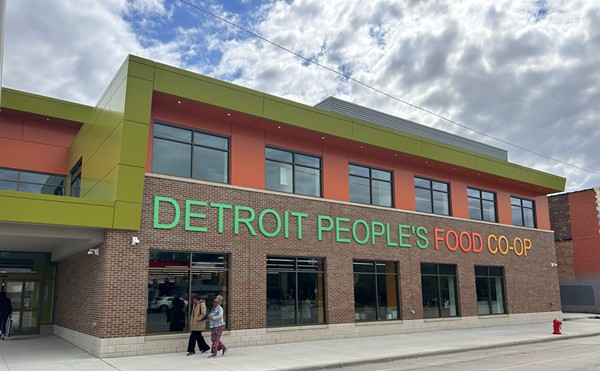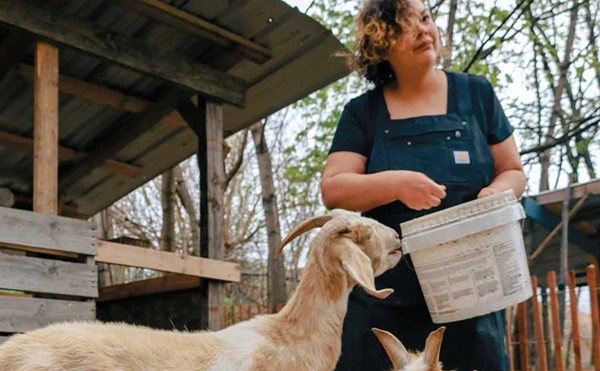
NIAID
This transmission electron microscope image shows SARS-CoV-2 the virus that causes COVID-19, isolated from a patient in the U.S.
More than a year into the COVID-19 pandemic, Michigan is once again a top U.S. hotspot for the virus — now ranking No. 1 in the country for the highest number of COVID-19 cases per capita over the last seven days. According to the U.S. Centers for Disease Control and Prevention, the state reported 361.5 COVID-19 cases per 100,000 people over the past week, followed by New Jersey and New York.
Dr. Natasha Bagdasarian, a senior public health physician for Michigan Department of Health and Human Services, says she believes the surge is due to a "confluence of things all happening at the same time."
Bagdasarian discussed the pandemic on Tuesday during a Zoom conference with U.S. Rep. Andy Levin (D-Mich.), answering questions from reporters and viewers.
"We're approaching a time in the pandemic that I'm calling the tipping point. ... At the same time, the cases in Michigan are rising," Bagdasarian says. "We are not heading in the direction we want to be heading. Cases are going up, the percent positivity is going up, which means there are probably more cases out there that we're missing, and so we really need to be cautious, especially with variants of concern on the horizon."
The "variants of concern" include the heavy presence of B.1.1.7., a highly contagious mutation of the virus first discovered in the U.K.
Michigan now has the second-highest number of reported cases of B.1.1.7., following Florida.
Bagdasarian says the surge comes as Michigan has loosened pandemic restrictions, allowing businesses to reopen. "When we look at Michiganders and mobility and how people are moving around the state, we know that as restrictions eased up, people are moving around more and going into public venues more," she says.
For example, the state saw a spike in COVID-19 cases among young people ages 10 to 19, a surge that correlates to youth sports resuming in early February — though Bagdasarian believes it isn't the schools themselves that are contributing to the spread of the virus but rather the social aspects around sports.
"We don't think that transmission was actually occurring in classrooms," she says. "I also don't think that when people are using mitigation strategies that transmission is occurring on the field. But there's a lot of socializing that goes along with high school athletics and with youth sports in general, and some of those activities and people getting together in homes, in restaurants, and off the field without their masks and without social distancing is what drove those cases to go up."
Michigan restaurants were also allowed to reopen for indoor dining in February.
Bagdasarian also says she believes that many people are simply weary of the pandemic and have let their guard down.
"What we're hearing is that people are just tired of COVID," she says. "They just want to move on. They want to take their vacation. They want to participate in activities. And it's disheartening because the end is in sight. We just have to make sure that vaccines win and the virus doesn't win."
Bagdasarian says the state has administered more than 4.2 million vaccine doses, and on April 5 vaccine eligibility will be expanded to anyone age 16 and older. Like many of health experts, Bagdasarian praised the vaccines as safe and effective.
"The adverse reactions have been very, very low," she says. "So I would say that these vaccines are some of the most regulated and most vetted vaccines that we have available. These are incredibly safe and effective vaccines."
Still, a recent poll from EPIC-MRA of Lansing found vaccine hesitancy could be a problem, with nearly half of self-identified Republicans saying they didn't plan to get vaccinated.
Bagdasarian calls on influencers in the community to help encourage people to get vaccinated.
"Education is key, but I don't think that education works just coming from anyone," she says. "I don't think that, that people on the call necessarily want to hear how safe and effective the vaccine is for me, if they don't know me. I think it's much better coming from your trusted leaders, whether that's a physician that you've known for 20 years, whether it's from your pastor, whether it's from your other community leader."
A declining number of Americans have a primary health care provider, however, and church membership has also been declining for decades. U.S. Rep. Levin says he hopes celebrities — as far as Republicans, "if you want to be stereotype, some country music artists, say" — will encourage their fans to get vaccinated.
"Even though there's light at the end of the tunnel, this is not time to relax," Bagdasarian adds. "This is not the time to let down our guard. And the only defenses that we have are things like practicing our mitigation measures — masking, social distancing, getting vaccinated."
You can learn more about how to get vaccinated here.
Stay on top of Detroit news and views. Sign up for our weekly issue newsletter delivered each Wednesday.






